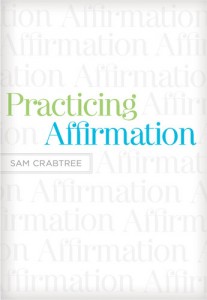“The sandwich method” is the correction strategy that puts every criticism between two slices of praise. According to Sam Crabtree, an expert on how to praise people, it’s not a tasty snack.
In Practicing Affirmation, Sam describes the manager who used the sandwich method so much, that employees began to dread hearing any praise because they knew what he was about to fill the sandwich with. Although he boasted about his method, his employees eventually called it “the baloney sandwich!”
Sam says, “Let affirmation stand alone, separated from correction….correction packaged with affirmation will contaminate and weaken the affirmation, perhaps making it altogether fruitless…Corrections tend to cancel affirmations, and the closer the proximity to correction, the more crippled the affirmation” (63, 64, 65).
It’s that close proximity of correction to affirmation that Sam argues against. In its place he proposes a much longer-term context of loving affirmation as the necessary backdrop to any loving correction.
It’s love that earns “a platform from which to challenge wrongful lifestyles and to be heard in doing so.” He says this many different ways, but in some ways it cannot be said enough. Our corrections will have no effect if there is no deep, wide, and long context of encouragement and affirmation: ”People are influenced by those who praise them. Giving praise does wonders for the other person’s sense of hearing” (54).
Also, as corrections tend to “weigh” more than affirmations, he suggests an affirmation to correction ration of at least 3:1, and preferably closer to 5:1. He illustrates:
Affirmation and correction are like a bank account. Affirmations are deposits. Corrections are checks you write against the balance in your account. If you write too many checks in relation to the deposits, your checks bounce – they’re no good. It will take additional credits to restore your your credit. And if the pattern of writing bad checks continues…your account may be frozen until you get serious about putting things in the black (52).
Sam doesn’t really want us going around with ledgers though: “Relationships are healthy when so much affirmation is being spread around that no one is keeping track of either affirmation or correction” (54).
For a book on how to praise people, Sam’s book is also remarkably helpful on how to correct and criticize in a constructive way. I’ve just highlighted a couple of the bigger principles, but he goes into a lot more detail in the book.
Practicing Affirmation Review (1): Scots don’t do praise
Practicing Affirmation Review (2): 10 ways to praise people
Practicing Affirmation Review (3): Is the “sandwich method” a lot of baloney?
Practicing Affirmation Review (4): Should we praise unbelievers?

Pingback: Links I Like (Weekend Edition) | Blogging Theologically | Jesus, Books, Culture, & Theology
Pingback: Nuggets [6/18/12] | Counseling One Another